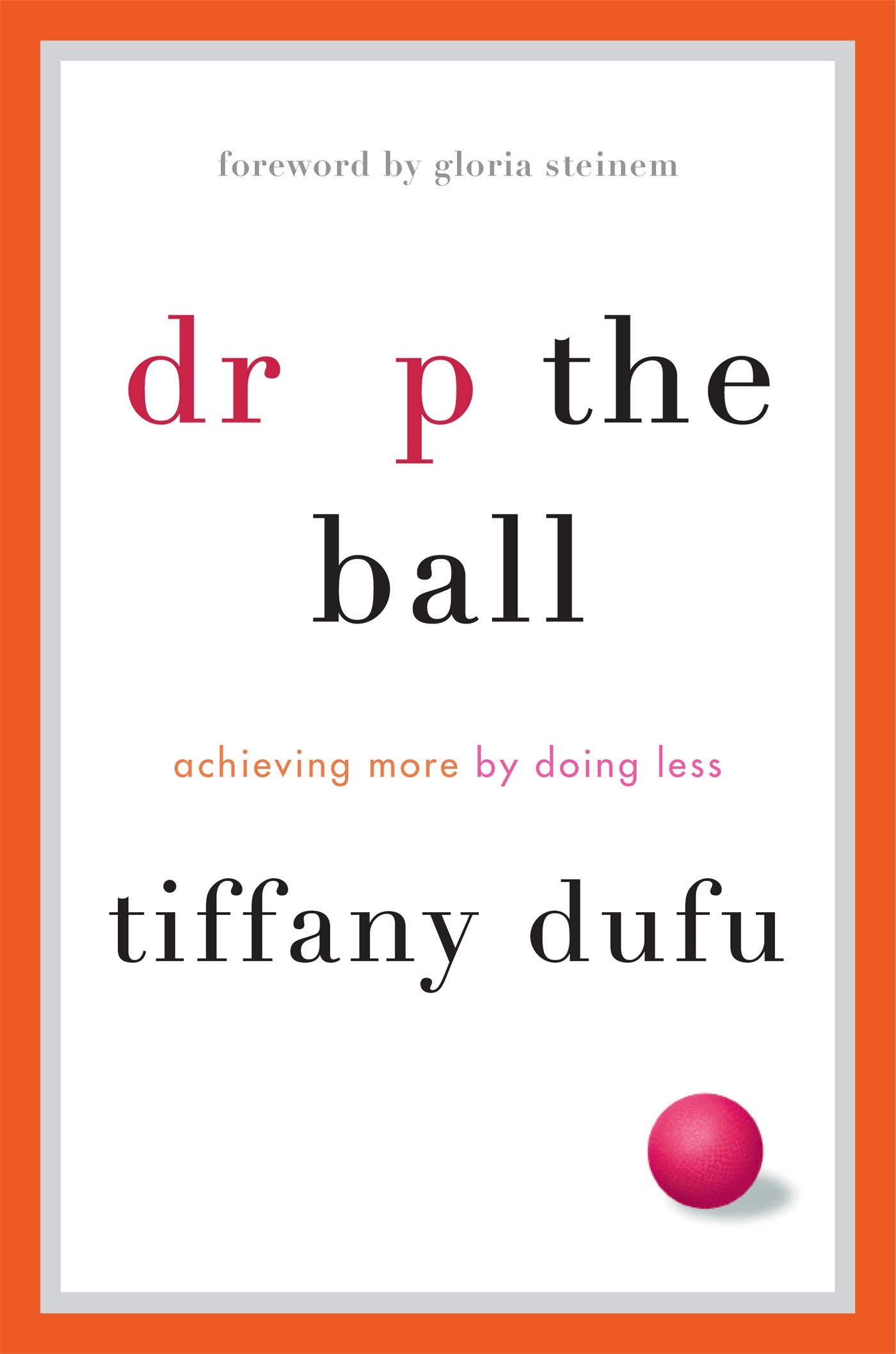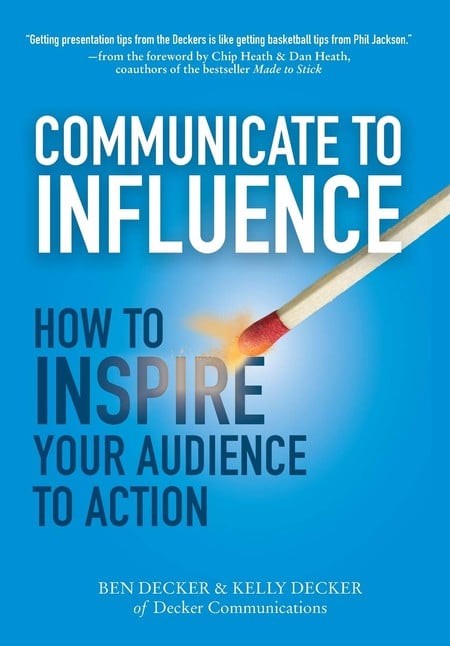Category: News
Identifying Skills That Can Help You Change Careers
If COVID-19 has negatively impacted your job, now is the time to diversify your professional toolkit to showcase your transferable skills. You may also find yourself curious about changing your career trajectory, and depending on what your current industry, it’s possible that it means switching industries entirely. Although you might not have all the experience necessary to pivot professionally, leaning into transferable skills can more than often make up for this lack of experience. If you can successfully demonstrate the relevance of these transferable skills throughout your resume, cover letter, and online portfolio, that will make you competitive in the job landscape.
Within almost every job listing, there are certain skills highlighted (i.e., communication, multitasking, collaboration, critical thinking, attention to detail, creativity, leadership, dependable, teamwork, organization), to name a few. These words are known as transferable skills because no matter what the job or profession is, they make the difference between a successful and unsuccessful workplace environment. Transferable skills are ones that apply in all professions and usually are the foundation of the workplace and organizational success. Transferable skills aren’t limited to the workplace; they can be skills you learned through volunteer work, hobbies, passion projects, or even being a parent. When considering what transferable skills you have, reflect on your life experiences in and out of the workplace.
When conducting your job search, it’s important to identify companies that reflect your passion points and interests as well as updating your resume, cover letter, and online portfolio to demonstrate to hiring managers the diversity of value you can add to their organization while highlighting your transferable skills. Given that job descriptions and tasks might not always line up perfectly with your previous experience, learning how to identify and hone your transferable skills can make a substantial impact on your job search process. Here are several ways that you can identify your transferable skills.
How to identify your transferable skills:
Discover the skills that set you apart
Take inventory of your entire professional toolkit, soft and hard skills. To make sure that your career change is successful by leveraging transferable skills, identify what makes you unique.
Understand how your skills translate
Understanding how your skills translate to a new industry is critical. Hiring managers and recruiters tend to gravitate toward candidates who have linear career paths and skills, which is an advantage and a disadvantage for anyone looking to change careers. If you’re able to help connect the dots for the recruiter or interviewer and show them why your skills are valuable, you’ve taken a step in the right direction.
Leverage your online portfolio, resume, and cover letter to land a new career opportunity
The final step to leveraging your transferable skills is tailoring your online portfolio, resume, and cover letter to highlight your cross-functional skills. While your resume can showcase your career trajectory and skills, your cover letter and online portfolio highlights your narrative and tells the story of why your skills are essential to the company and role.

How to Stand Out in Front of your New Employer
To excel at your career and reach your goals, you have to work hard to stand out. Think of it as a competition, except rather than competing with your coworkers, you’re up against yourself. By pushing to do better and give it your all, you’ll stand out in front of your new employer and show them that they made the right choice.
Here are some helpful tips to help you stand out in the crowd at your new job.
Start Before Day One
First impressions are everything, and when it comes to finding a new job, that impression takes place well before you get hired. If you want to stand out to your new employer, you need to start showcasing your value before day one.
Show that you value their time by presenting a neat, well thought out resume. You can accomplish this task easily by finding an online resume template to give you some guidance. Dedicate time to researching the company and the role, so that you can give specific answers about how you’ll add value to the business.
After your interview, be sure to follow up and thank the interview panel for their time. Doing so will be appreciated and reconvey your interest in the position. It will also set your name apart from the other candidates.
Set Positive Boundaries
Entering a new company culture can be challenging. Sometimes some cliques and politics can be distracting and disheartening. As a new employee, it’s essential to avoid getting sucked in.
Set positive boundaries with your coworkers and refuse to engage with office drama. Be friendly and engaging without getting into gossip sessions, and save your vent sessions for after hours at home.
Be Proactive
Try to anticipate challenges before they happen as you get into your new role. Once you’re comfortable with your new responsibilities, be proactive and let your employer know that you’re ready to take on more. Your boss will appreciate your enthusiasm and flag you as a self-starter.

How to Identify Abuse In The Workplace
When people think of abuse, the workplace is most likely the last place that comes to mind. In reality, workplace abuse is actually more common than you may think. According to a study, 75% of workers are affected by bullying annually. Having gaps in your resume due to workplace bullying and job separation can be hard to explain to a new employer.
n this article, we talk about workplace violence, abuse and bullying to give you a clear description of what workplace abuse is and what it looks like. We also touch on the lasting effects of workplace abuse including emotional trauma. Lastly, we give you tips and advice on where to get help if you’re a victim or survivor of workplace abuse.
An Exercise In Manipulation And Control
Workplace bullying experts point out similarities between workplace bullies and domestic abusers who seek to manipulate and control their abused counterparts for emotional, financial, or social gain. Workplace abuse and violence can occur between a superior and a subordinate as well as coworker-to-coworker and can have lasting effects on the abuse victim’s mental health.
Workplace Violence, Abuse, and Bullying
People who initiate workplace abuse may feel threatened by the target of their abuse and take every opportunity to demean and ridicule their victim, oftentimes to the point of emotional trauma including anxiety, post-traumatic stress disorder, and depression. Workplace abuse not only takes an emotional toll on the victim but also the workplace as a whole.
Behaviors in the workplace that prevent the work from getting done that relate to workplace abuse are threatening, humiliating, and intimidating. As a result of work interference, and sabotage, other employees and the business suffer. Some workplace abuse behaviors aren’t always easily detected.
Verbal Abuse
Rude, threatening or inappropriate comments made out of earshot of coworkers is an example of covert verbal abuse. Much like domestic violence abusers, perpetrators of verbal abuse often take care to make sure that their inappropriate language is only heard by the victim.
Verbal abuse can also come in the form of emails, text messages, and phone calls made by coworkers or superiors that are demeaning or threatening to the victim. For example, a coworker may constantly berate or ridicule other coworkers in the name of “poking fun.”
This behavior continues even when the victim has voiced their concern or displeasure about the inappropriate teasing. Employers who don’t address these issues (especially if they are known to the employer) may find themselves facing public lawsuits or embarrassment when an employee seeks damages for harassing, threatening or abusive behavior in the workplace.
Sexual Harassment
Unwanted sexual advances or demands for sexual favors in the workplace fall into this category. Sexual harassment can involve inappropriate requests from superiors to subordinates, males to females, and vice versa. Sexual harassment can happen between all sexes. In most cases, the person being harassed is threatened with being fired or demoted if they don’t comply with inappropriate sexual advances and requests.
Physical Abuse and Violence
On rare occasions, workplace abuse can escalate to physical abuse or violence. Instances of workplace violence can range from simple battery to homicide. Workplace violence can come in the form of physical aggression like hitting, kicking, or throwing things. It can also become more violent when weapons like guns or knives are involved. This is why it’s critical to address workplace abuse before it escalates into something more.
Lasting Effects Of Workplace Abuse
Experiencing workplace abuse can have a lasting effect on your self-esteem and self-worth. You may devalue yourself and feel that what happened to you was somehow your fault. Depending on the level of abuse or violence experienced, you may have actual physical scars from instances of workplace abuse.
If you’re having trouble coping with the fallout of workplace abuse and you need help, remember there are leading therapy sites that will provide affordable access to board-certified therapists online 24-hours day. These counselors from online therapy services can provide you with coping strategies for dealing with the effects of workplace abuse. Talking to a therapy expert is one of the best things you can do to heal and move forward with your life.
How To Get Help
If you’ve been a victim of workplace abuse, you’re not alone. Remember that 75% of employees have also experienced workplace abuse at some point in their careers. In order for workplace abuse to end, it has to be reported. Keep records of incidents of workplace abuse whenever possible. Contact your human resources representative to learn how your company policy on workplace abuse, sexual harassment, and other forms of workplace abuse. If you’re struggling with damaging emotional effects of workplace harassment, abuse, or violence, seek the advice of a licensed therapist.

How to Write Thank-You Emails After Interviews
Most job seekers put a lot of effort into crafting a resume and preparing for an interview. Here’s what many people don’t spend much time on but should: thank-you emails after interviews.
It’s surprising how many job candidates don’t bother to send a thank-you note, because it really does make a positive impression on employers. It’s a simple step to take, and it can separate you from equally qualified candidates who don’t send a thank-you email after an interview. And yes, you should write a thank-you message after a video interview just as you would an in-person meeting.
If the challenge of crafting a great thank-you email is holding you back from sending one, you’ve come to the right place.
What to include in a thank-you email after an interview
Here are the basic points you should include in just about any thank-you note you send after an interview, and a few optional ideas:
- Express thanks for the interviewer’s time.
- Briefly reinforce why you’re interested in the job and why you’d be a good match.
- Consider adding something that you and the interviewer discussed while getting to know each other that makes the thank-you email more personal.
- Offer to answer any questions they might have.
- Add relevant examples of your work, or suggest a solution to a company problem that came up during your conversation.
- Close your email by reiterating your appreciation for the interview and asking about next steps.
Templates for thank-you emails after an interview
The type of thank-you email you write will depend on what kind of company you interviewed with. This first template for a thank-you email after an interview is short and to the point, but it gets the job done.
Hi [person’s name],
It was such a pleasure to meet you today to discuss [role you applied for] at [company name]. The position sounds like exactly the type of job I’m looking for, and I believe my experience in/with [accounts receivable/Java programming/managing a team] would help me thrive in the position.
If there are any additional questions I can answer, please let me know. Thanks again for meeting with me to speak about this exciting opportunity.
Best regards,
[your name]
If you want to distinguish yourself a little more in your thank-you email, you might try something like this:
Hello [person’s name],
Thank you so much for meeting with me [insert day] and discussing the exciting job opportunity at [company name].
I’m very interested in the position and believe my [two/five/ten] years’ experience [writing marketing copy/managing a sales team/designing websites] would be valuable as your company [is rebranding/courting new customers].
You mentioned that your team is in the middle of an [expansion/migration to the cloud], and I wanted to offer you a few ideas I think would help [briefly talk about your ideas].
You’ll find some links to my [rebranding work/website redesign] at the bottom of this email.
I look forward to hearing from you about next steps in the interview process and would be happy to answer any other questions you have about my fit for this position.
Best regards,
[your name]
The two thank-you note examples above would likely work well for many companies. But if you are applying for a job in a more buttoned-up industry, you might want a slightly different tone. (However, even in a company with a formal culture, a candidate for a web developer position may find that the people she meets are more casual than the client-facing side of the business, so use your best judgement.) If you are interviewing for a financial or consulting position at an accounting firm or somewhere similar, this third option might be for you:
Dear [insert name],
Thank you for connecting with me today to discuss the job opportunity at [insert company name].
I am very interested in the role and believe my skills would be an excellent match for the position as you described it. With more than [three/seven/fifteen] years of [management/financial accounting/investment banking] experience, I could immediately begin to contribute to your firm as it [transitions/expands/seeks new clients].
On a personal note, I really enjoyed talking to you about [our alma mater/love of basketball/interest in cooking].
I look forward to hearing from you soon. Please don’t hesitate to ask if there are any other questions I can answer about my work experience and how I might contribute to your company.
Best regards,
[your name]
Final considerations
The above templates for thank-you emails after interviews should work in most cases. You can also mix and match parts of the sample messages to create a unique thank-you email. There are a few other related things to think about, however:
Write a clear subject line. You can simply write “Thank you for the interview” in the subject line, or something like “Following up on our interview.”
Email multiple interviewers. If you interviewed with multiple people, write a separate thank-you email to each person, though change each note slightly. An easy way to do this is to mention something that only the two of you spoke about — maybe it was your shared love of dogs or the city you grew up in.
Carefully review the email. Don’t send your note without reading it through a few times to make sure you don’t have any typos. Sending a note with mistakes is going to accomplish the opposite of what you want: You’ll distinguish yourself for the wrong reason. You might ask a trusted friend to review it as well.
Time it right. It’s best to send a thank-you email within 24 hours of your interview. Doing so demonstrates your interest in the job. It also keeps you top of mind with those you met with as they consider other candidates.
A closing thought on thank-you emails: Make sure you sound genuine in your note. Consider what you might say if you were saying thank-you in person to make the email a little more personal. Even a formal thank-you email after an interview should sound like it’s from a real person, not a template. Good luck!

Practice Mindfulness Throughout Your Workday
With our current climate of uncertainty, it can be challenging to focus on ourselves, practice mindfulness, and wellness all while managing several different variables. Although COVID-19 has caused a tremendous amount of anxiety, distress, and confusion in many lives, there are ways we can ground ourselves to be mindful and present at work. While our jobs help us build and maintain our lifestyles, help us pay the bills, and can provide purpose to us, they also can contribute to our stress levels. With tight deadlines, essential projects, tough conversations, our jobs can be anxiety-provoking, but mindfulness can help ease workplace stress.
People talk a lot about “mindfulness,” but it’s easy to lose track of why it’s so important. Remember, mindfulness is focusing on the present moment without casting judgment or expectation, which is a powerful way to reduce stress on the job. Meditation – an active practice of mindfulness – is a positive way to train the mind to focus on a specific moment and task. Most times, we find ourselves thinking about the future, dwelling on the past, worrying about what’s next, or daydreaming. Meditation brings us back to the moment and helps us be less stressed, calmer, and kinder to ourselves and others. We have the power to control our emotions through observation and intentionality.
There are many ways to cultivate mindfulness throughout your workday, from taking some time away from your computer and walking to taking purposeful pauses to eat lunch or muting your Slack notifications. Practicing mindfulness helps us to improve our focus. Especially now that we find ourselves in the midst of a pandemic, it’s easy to get distracted by the constant news notifications and looming anxiety about the future; mindfulness can help by improving focus bringing us back to the present moment. The goal of mindfulness isn’t to stop thinking or to empty your mind but to instead focus on physical sensations, thoughts, and emotions to view them more holistically, without making assumptions or predictions about what might happen next. Being mindful at work can help you become more productive, improve your decision-making skills, and increase your creativity levels.
Given COVID-19, we’ve all had to shift our workplace environments from the office to working remotely, which causes a shift in our everyday work schedules and routines. By learning how to focus more effectively, communicate more compassionately, and demonstrate empathy, we can easily avoid many common pitfalls of being disorganized, distracted, and dissatisfied while doing our jobs.

Even without a formal meditation practice every day, there are easy steps to giving yourself the gift of staying present and on task during your workday, such as:
- Turn off pop-up notifications and push notifications.
- Answer email during dedicated periods of time, rather than constantly throughout the day as soon as it pops into your inbox.
- Knock out the most taxing and important on your to-do list first or right in the morning.
- Finish one task before you begin the next.
- Be diligent about taking a purposeful pause:
- Take a moment to check in with your body. What does it feel like to take one breath? How does it feel to stand, or sit, with the weight of your body balancing there?
- If your mind wanders, come back to the sensations in your body.
- And when you’re ready, proceed with your day.
Lastly, it’s important to leave work at work to maintain your mental health. Try not to check your email constantly after you’ve completed your workday. While working remotely or from home makes that difficult, focus your energy on being present with friends and family once your workday has ended. To ease this practice, incorporating a simple exercise, known as R.A.I.N., which can help us stay in the present moment and not get caught up clinging to the experiences of others or our own emotions.
R: Recognize. Acknowledge what is happening, just noting it in a calm and accepting manner.
A: Accept. Allow life to be just as it is, without trying to change it right away, and without wishing it were different somehow.
I: Investigate. See how it feels, whether it is making you upset or happy, giving you pleasure or pain, just note it.
N: Non-Identification. Realize that the sensations you are feeling make for a fleeting experience, one that will soon pass. It isn’t who you are.

8 Super Motivating Career Books
No matter where you are in your career, sometimes you need a little help to really shine at work. Whether you’re looking for friendly advice on meeting a specific challenge or a kick in the pants to totally transform your career, you can often find that help in a great book.
But where to even start? We’ve done the research for you by finding the best books to help you wherever you are in your career (and whoever you are!). In honor of Women’s History Month, they’re all written by women. And bonus: All of them come reader-approved with high ratings.
Radical Candor: Be a Kick-Ass Boss Without Losing Your Humanity

Rating on Goodreads: 4.2/5
A common challenge for any boss is how to deliver feedback in a clear, motivating way without falling into the trap of being an obnoxious jerk or an overly-empathetic people pleaser. In Radical Candor, Scott will help you balance this tricky line by sharing the principles she honed as a manager at Google and Apple. Follow her advice to be the kind of boss that creates a place where people do their best work—and feel really good about it.
Playing Big: Find Your Voice, Your Mission, Your Message

Rating on Goodreads: 4.2/5
We’ve all heard the advice that we should seek out mentors, but if it’s hard for you to find one, this book is the next best thing. There are some excellent chapters on topics such as how to communicate better so you earn trust, how to deal with fear, and the importance of taking a leap. While this book is aimed at women, many of my male colleagues said they’ve found the advice useful, too, and it’s a great book to read with a friend or partner.
Brave, Not Perfect: Fear Less, Fail More, and Live Bolder

Rating on Goodreads: 4.0/5
Feeling like you have to be perfect at everything can be a real hurdle in your career. It stops you from speaking up in meetings because you’re afraid of being wrong, holds you back from applying for a new role because you don’t meet 100% of the qualifications, and makes you spend hours finessing a document you should have submitted days ago. If you’re someone who often doubts themself, this book will provide you with inspiration and encouragement on how to push through those perfectionist tendencies and take the leap. Author Reshma Saujani, who founded Girls Who Code, will show you that bravery is a muscle; the more you use it, the stronger it will be.
Overcoming Underearning: A Five-Step Plan to a Richer Life

Rating on Goodreads: 4.2/5
We all have a personal story that drives how we think about money. Author Barbara Stanny helps you understand and tackle those inner beliefs that may be sabotaging how much you earn—and how much you keep. It’s full of exercises that’ll help you uncover your true money mindset, and is a great book for anyone who wants to make positive changes to how they think about their self-worth and their relationship with money.
Drop the Ball: Achieving More by Doing Less

Rating on Goodreads: 3.8/5
Research shows that women do more household chores than their male partners. The result is that women are often working a second shift when they get home from work, which can negatively affect the time and energy they’re able to devote to their careers. In this friendly, learn-from-my-experience book, Dufu shares some of her misguided attempts to get her husband to do more and how they ultimately worked together to develop a better balance in their responsibilities. The same principles in this book can also apply in the office, as women (and especially women of color) are more often asked to take on “office housework” than white men.
The Upside of Stress: Why Stress Is Good for You, and How to Get Good at It

Rating on Goodreads: 4.2/5
Stress is a natural and frequent part of our lives, whether you’re putting in long hours getting ready for a big product launch, preparing for a difficult conversation, or figuring out how you’re going to get everything done and still make it out of the office to pick up your kids. Author Kelly McGonigal argues that we can use stress to our advantage if we think about it in a different way. If you feel like all that pent-up emotion is holding you back or you just want to deal with it in a healthier manner, this book is for you.
How Women Rise: Break the 12 Habits Holding You Back From Your Next Raise, Promotion, or Job

Rating on Goodreads: 4.2/5
For women who are wondering why they’re being passed over for advancement while other people (especially men) move ahead of them, business coaches Helgesen and Goldsmith lay out 12 habits that could be derailing your career. I’m a big fan of the chapter on “ruminating” because it’s a very healthy reminder on how to move on from mistakes.This is the kind of book you’ll keep on hand to help you through any tough situation.
Communicate to Influence: How to Inspire Your Audience to Action

Rating on Goodreads: 3.9/5
Co-authors, business partners, and life partners Kelly and Ben Decker walk you through their method of creating engaging presentations that win people over and lead to the results you want. Each chapter ends with exercises to help you eradicate behaviors that hold you back and adopt a stronger communication style. You’ll learn about the number-one thing you need to do before planning your presentation narrative (hint: it has nothing to do with you), and the power of the rule of three. Make sure you have a highlighter handy once you start reading this one!

How to Stop Workplace Gossip
There’s no getting around it: The grapevine exists. Regardless of whether you work for a large corporation, midsize company or small business, workplace gossip is just a fact of office life. But as a manager, it’s critical to know when it moves from harmless water cooler chatter into something more corrosive.
Following are six tips to help managers effectively deal with the workplace gossip grapevine.
Maintain an open-door policy
If you want to be kept in the loop, your employees need to know you want them to come to you with their concerns. Some employees will still hesitate to speak up first, so be proactive and catch up with them regularly to keep your finger on the pulse of the office. If your company has a workplace gossip policy, be sure to share it with your team.
Provide clear and candid information quickly
This is particularly important during times of change when workplace gossip tends to spread at a faster pace. Nothing gets the rumor mill churning faster than silence from management on an issue, so avoid withholding information and create an environment of transparency and trust.
Address workplace gossip swiftly
Whether it’s a rumor about the company or about a particular employee, don’t wait to see if it fizzles out on its own. The negative feelings created by the rumor will only fester and lower morale. Taking action immediately to address the issue at the source of the gossip will help employees feel safe in their work environment and stay focused on their jobs.

Share praise
When management displays a tendency to favor one staff member over the others, hurtful rumors are likely to follow. Show your staff you value collaboration by praising everyone for the roles they play in helping the team meet its goals. Workplace gossip about individual employees is less likely to occur when everyone feels that their work is appreciated.
Clarify individual roles
Disagreements and “turf wars” often result from team members not fully understanding the parts their colleagues play during a project. Be explicit when you assign duties, and make sure everyone is aware of the chain of command. This will help avoid territorial squabbles while also enhancing productivity.
Lead by example
One of the best ways to deal with gossip as a manager is by being a positive role model. Never spread rumors and avoid criticizing your superiors in front of staff members. Managers who consistently demonstrate integrity will inspire the same from their employees.
Even seemingly harmless office gossip can hurt employee morale, leading to a decrease in productivity and problems with retention. A savvy manager stays ahead of the game by communicating with employees, addressing rumors head-on and setting an example with a leadership style built on openness and trust.

Time Management When Working From Home
Raise your hand if managing your time during the COVID-19 pandemic means the lines between the office, home and your kids’ schoolwork now blur together — or might not exist at all. (If you raised your hand, we see you. If you couldn’t raise your hands because you’re listening in on a conference call while messaging your boss while also shouting homework directions to your kid, we understand).
Time management is a challenge during normal times, but when working remotely, it can be tougher without the parameters you’re accustomed to when you’re in the office. Here are eight tips for time management that can help you be more effective.
Plot your schedule
If you’re working at home with a partner, collaborate on a schedule each day or at the start of the week to determine who will be working where and when, and who will be in charge of any childcare or house duties. Writing it down makes it easier to follow, whether it’s on a shared calendar app (such as Google Calendar or TimeTree) or even written on a piece of paper hanging on the refrigerator.
Designate spaces
Choose separate rooms or areas around the house and designate the expectations for each. For example, the desk you set up in your bedroom is only for work, the living room is only for leisure time, and the kitchen table is only for meals and kids’ schoolwork time. This helps you create the connection between physical space and what to mentally focus on. Using your living room for Netflix binging might make it trickier to get in “work mode” while sitting with your laptop on the couch, so find the best spots in the house to work and play, and try to keep it consistent.

Explore productivity apps
Take advantage of the wide selection of software designed to help people increase productivity (Evernote and Focus Booster are two free options). These apps not only help you keep track of projects, meet deadlines and be more organized, but also alert you when it’s time to take a break or finish out your workday. That can be pretty valuable on afternoons when you lose track of time and would otherwise keep going for an hour or more beyond quitting time. If you’re looking for break reminders and a good stretch, Stretchly is an open-source application that offers a screen reminder and timer to get you up and moving from your desk.
Dress like you’re going to the office
Don’t just throw on a pair of sweats every day. This may not seem like a time management tip, but having a routine — getting up at the same time each day and wearing clothes you wouldn’t mind going out in public in — will help you get in a frame of mind to focus on your work projects. And when you’re focused, you manage your time more effectively.
Treat free time like work meetings
It’s important to continue taking breaks like you normally would in an office setting. Schedule them on your calendar like you would for any other work meeting, even if it’s for 10 or 15 minutes at a time. Not only does this mean you’ll get a reminder, but it’s also a chance to block your calendar so colleagues see you’re busy. Use your free time to take a quick walk or have “watercooler talk” with your coworkers (also known as your family or pets).

Minimize social media distractions
Are you finding that social media is constantly distracting you? Log out of your social media accounts during work time so you’re less inclined to use them. You can remove them from your web browser shortcuts or try working on a private or “incognito” browser so you can’t auto-login to any social media pages.
Be transparent with your manager
The typical 9 to 5 workday may not be the most realistic if you have family obligations competing for your time. You might also notice you’re more productive during nontraditional hours, such as before others in your house wake up or after dinnertime. Either way, communicate openly with your manager so you’re on the same page about work hour expectations.
Set boundaries that work for you
Now that your commute home after work might just mean a walk from your kitchen table to the couch, it can be difficult to end your workday definitively. Having mobile access to work email and apps can also make shutting down a challenge. To maintain a healthy work-life balance, set an alarm to remind yourself when to end your workday. Turn your computer off and store it somewhere away from where you are so you’re not tempted to keep checking in. Some people even disable notifications for work-related apps on their mobile phone at the end of the day. A final tip: Include your work hours in your email signature or as a status/away message, if possible. That might help cut down on colleagues reaching out to you outside your work hours.

Protecting Yourself From a Layoff
Whether because of mergers, downsizing, organizational shifts, or a pandemic, countless workers inevitably find themselves losing their jobs through no fault of their own. It happens to the most seasoned and dedicated among us, and that’s perhaps the scariest thing about getting laid off — no one is immune. That said, there are certain steps you can take to minimize your chances of getting laid off, and reduce your anxiety along the way.
Have a unique skill
Though soft skills — those that apply to virtually any position — are always a good thing to work on, at the end of the day, you’re probably not going to get to keep your job in a round of layoffs by virtue of your solid time-management ability alone. That’s why it pays to work on honing one particular skill you know your company absolutely needs. If you’re an IT professional, maybe it’s a complex software that’s needed to keep the workflow going. If you’re a designer, maybe it’s that cutting-edge graphics program that’s been giving your company its competitive edge. No matter what skill you’re best suited to focus on, if you set yourself apart as the one person who’s an expert in that arena, your company might hesitate to give you the boot.
Know the business inside and out
Maybe you’re the best copy director your company has ever seen. But if your knowledge base is limited to effective sales pitches, and you’re not well-versed in market research, finances, or analytics, then you might still find yourself out of a job if your company is forced to slash positions. On the other hand, if you make an effort to educate yourself on all aspects of the business, your company will have a much harder time letting you go.
How do you get there? Sit in on other teams’ meetings, and ask to collaborate with various groups on recurring projects. The more exposure you get to different areas of your company and how they work, the more your management team might end up fighting to keep you.
Keep up with your business associates
It’s no secret that networking has been proved to help countless searchers land jobs, but many people find themselves networking defensively — that is, they only start reconnecting with contacts once they’re out of a job and need help. But if you make a point to stay in solid touch with your associates regularly, you’ll protect yourself in the face of layoffs in two ways.
First, if you network extensively within your company, you’ll have more people around to speak highly of you, which might spare you from getting the ax. Second, if you have associates you contact regularly, you won’t come across as taking advantage by reaching out for help if you are indeed let go. Or to put it another way, it’s a lot easier to ask a favor of someone you’re in touch with regularly than to sneak up as a blast from the past wanting assistance.
Boost your emergency savings
Having more money in the bank won’t do a thing to help you avoid losing your job. What it will do, however, is buy you some peace of mind that if you are let go, you won’t have to immediately resort to credit card debt just to keep up with your finances. Having that stress removed might, in turn, help you focus better at work, thus reducing your chances of landing on the chopping block. Plus, if you are laid off, you’ll be less pressured into taking the first job you find because you’re desperate for money.
Though layoffs are sometimes inevitable, there are things you can do to lower your odds when your company is going through them. If anything, working on the above suggestions will give you someplace to focus your energy so you’re not utterly fixated on the thought of losing your job.










